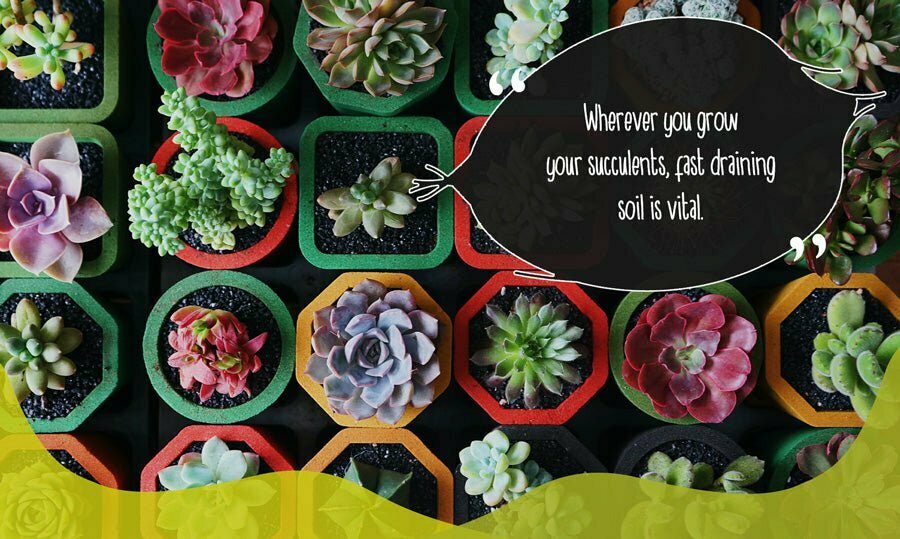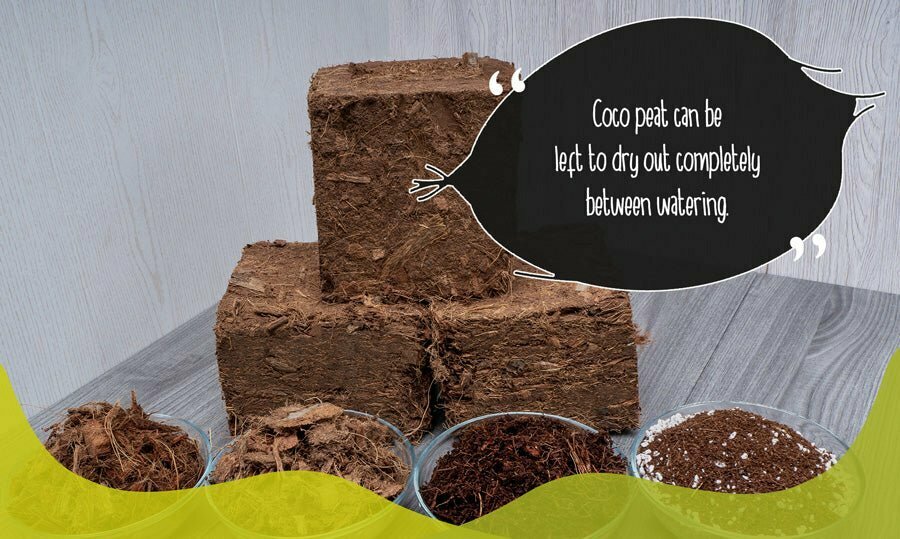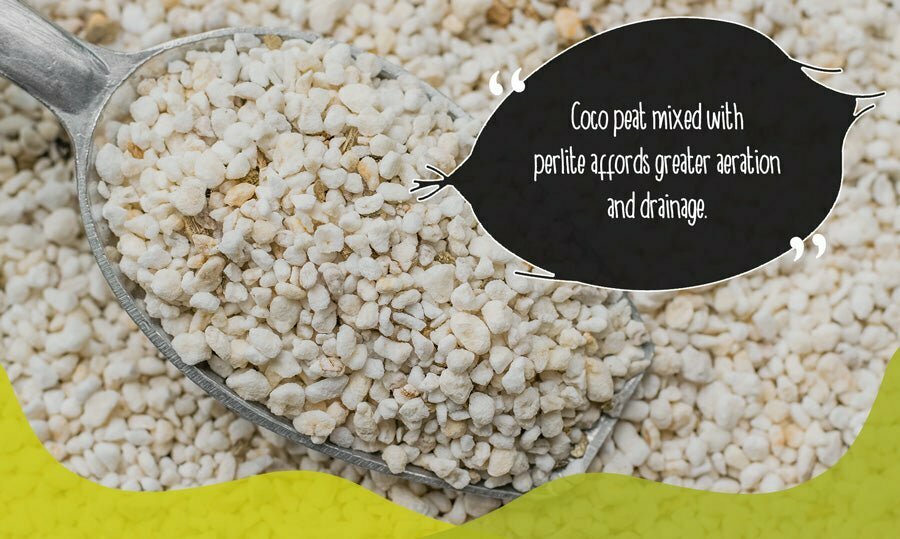Is coir compost good for succulents?
A commercial mix of coir compost with other minerals will provide the soil environment needed for young plants to develop into full-grown succulents. The loose soil structure will also help facilitate root growth.
The importance of the right soil for succulent care
Wherever you grow your succulents, it’s vital to choose the right kind of soil which allows for fast drainage. The substrate needs to retain moisture for the plant to rehydrate. However, it also needs to drain quickly to avoid root rot.
Frequent watering is more likely to damage succulents than watering in higher volumes less often. It can be beneficial to flush soil, especially if you have recently fertilised plants, until water runs out the bottom of the pot or soaks beds.

To accommodate flushing and deep, infrequent watering, potting soil or garden soil needs to be porous enough to expel excess water but allow the surrounding soil to dry out quickly.
For succulents, the right soil can make the difference between staying hydrated and failing to thrive. A potting medium like coir compost retains moisture for roots, while allowing excess quantities of water to escape.
Helping to avoid root rot
Root rot is a particular issue for succulents adapted to arid conditions. Succulents store water within their leaves, so there’s no need for additional water stores or means to absorb additional moisture.
Besides being sustainable, as it is not harvested from peat bogs, coir compost re-absorbs moisture even once it has completely dried. Unlike sphagnum peat moss which may not absorb much water once it has dried, coconut coir peat can be left to dry out completely between watering.
Coir compost is naturally sterile
Succulents do not need as many nutrients as other plants, as they rarely flower. Too much nitrogen in the soil can damage them.
The sterile composition of coir compost means the introduction of nutrients can be measured and controlled. It also prevents nitrogen already present in soil from damaging young plants.
If you feed succulents on a similar schedule to flowering plants, nutrients can build up in the soil. This will result in concentrations high enough to cause damage.

Good aeration makes healthy succulents
Well-aerated soil doesn’t only help to protect roots. The presence of air is also essential for photosynthesis.
Peat moss breaks down much faster than coco fibre. This means it ends up becoming densely packed. The premature action reduces the availability of air to the roots.
In comparison, coco fibre maintains its structure longer. This allows succulents to develop and maintain healthy root systems.
Succulents grown outdoors naturally have access to a reliable supply of fresh air. Indoor succulents may need a little extra help.
A coco coir potting mix recipe which contains porous minerals, such as perlite, will balance the right soil structure with the porosity valued in good soil mixes for optimal aeration.
Organic and mineral balance in succulent potting mixes
The best growing mediums for succulents mix organic matter and mineral materials, though the exact measurements needed will vary. Many organic garden soils are too heavy for succulents, but coco compost’s less compact structure is better for promoting healthy growth.
Perlite is a lightweight material that is ideal for potting mixes. It is less likely to sink and settle at the bottom of pots or compress the loose structure of coco coir. More water retentive than pumice, perlite complements coco coir by providing roots with a reliable supply of water.

Good quality coir compost makes a difference
Grown mostly by the sea, coconut coir fibre naturally contains high levels of salt. It should be soaked in fresh water to remove excess salt that can otherwise damage plants.
Some manufacturers use chemicals or rushed processes that result in low-quality coco coir products. At Coco & Coir, we only supply the highest quality coir compost, coir fibre and coir chip mulch for you and your garden.
Our coco grow plus contains a special soil mix of natural coco coir and perlite. It offers the perfect balance of porosity, fast drainage, aeration, and water-retention – and no nasty chemicals – superior to regular potting soil and perfect for succulent care.
The complete range of environmentally friendly coir compost and different soil mixes we provide are designed with all gardening projects in mind, and are guaranteed to yield impressive results.
For more information, don’t hesitate to get in touch with the team. We can advise you on the right coir compost for whatever you are growing, knowing the result is eco-friendly and sustainable.










